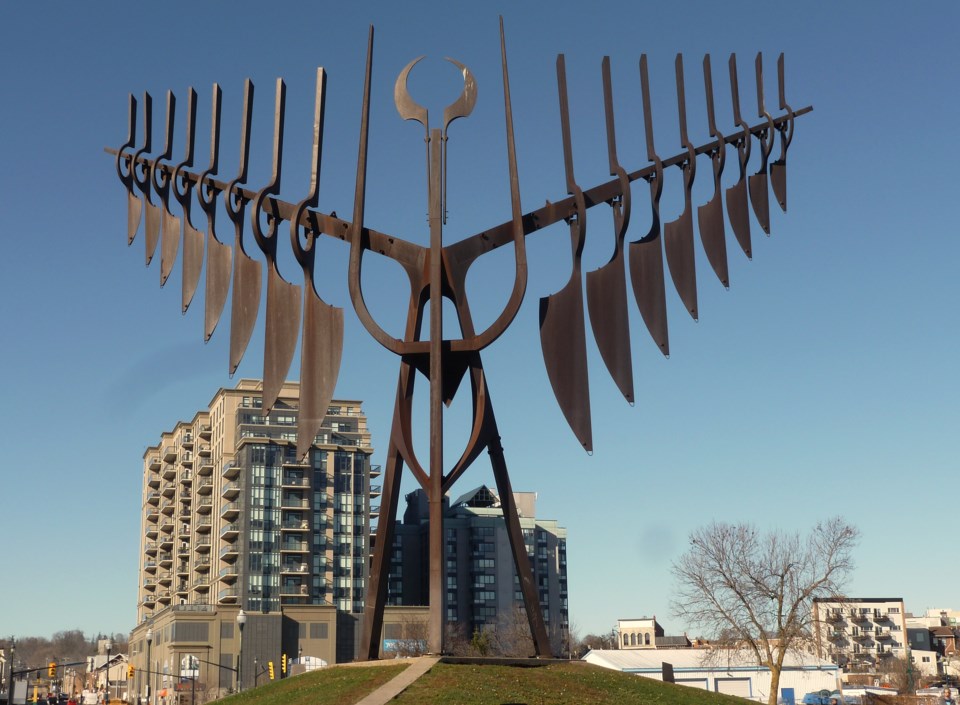City tourism is getting a new roadmap for success.
Councillors will consider initial approval Monday of a motion to receive, and approve in principle, Barrie’s tourism master plan, and have city staff report back next spring with prioritized recommendations on implementing and executing the plan — when COVID-19’s impacts on tourism and associated recovery conditions may be more conducive to implementing it.
“A tourism master plan is important and necessary because it’s a 10-year plan and it gives (city) staff a direction and a focus, that this is where resources should be put,” said Kathleen Trainor, Tourism Barrie’s executive director. “There are so many facets to tourism, and the master plan focuses on the main areas for your destination.
“It shows Barrie should be doing a lot more with sport tourism, that sport tourism is a huge driver," she added. "The winter season infuses millions of dollars into the area economy.”
The city considers tourism as an economic driver in Barrie, and the tourism master plan is designed to leverage and support the growth of existing tourism in this area, integrate sports, nature and business tourism, and provide direction on growing the sector overall.
The plan identifies specific strategies on how tourism could support the city’s economic development objectives, including the attraction and retention of talent and investment, diversifying economic sectors, and growing creative industries and knowledge-based sectors.
“Staff in city hall need to have a tourism lens to some of the policies that they do,” Trainor said. “When they are developing policies — when doing a waterfront master plan or a GO train master plan — that there is a window. Tourism should be part of that conversation.”
Tourism, or the visitor economy, embraces a vast number of related industries and suppliers, and contributes to most cities’ economies. It includes all overnight and day visitors to a destination from leisure, business and sports segments, as well as the activities and expenditures involved in supplying products and services for these visitors by both the private and public sectors — transportation, food service, attractions, events and retail.
It’s estimated that Canadian tourism is worth almost $102 billion annually, and accounts for 10.6 per cent of the Canadian workforce. Youth employees are 31 per cent of the tourism workforce.
The tourism master plan does recommend a specific sport tourism strategy, noting the current mix of sport facilities in Barrie provides a good base for community use and some provincial competitions.
The plan also recommends investing in the further development of year-round outdoor assets for outdoor experiences such as nature and hiking trails, parks, cycling, snow-related events.
It also recommends supporting and investing in visitor-focused arts, cultural and live events, such as theatre, music and festivals.
Barrie and the surrounding region possess a variety of well-managed tourism attractions and assets, and a steady flow of visitor traffic throughout the area, but the tourism master plan illustrates that much of the traffic flows through Barrie on its way to regional destinations, rather than stopping and staying overnight in Barrie.
The pandemic has changed tourism, just as it has altered almost every sector of Canadian businesses. But local tourism should do more than survive.
“We are expected to have a very good winter, despite COVID, because people want to be outdoors,” Trainor said. “So being able to go out on a trail, being outdoors and separating yourself from people…
“People are getting squirrelly. They don’t want to stay inside.”
In 2019, 484,730 people stayed in a Barrie accommodation, occupancy was 69 per cent and tourism infused $43.5 million into Barrie’s economy, Trainor said.
But the pandemic’s effect on tourism in 2020 has been unprecedented. From Jan. 1 to Sept. 30, compared to 2019, there was a 32 per cent decline in occupancy or people staying overnight in a Barrie commercial accommodation.
By mid-March 2020, Barrie's hotel industry experienced a steep decline in occupancy and it bottomed out in April. Barrie's hotel occupancy month-over-month, however, was higher than the average Ontario hotel.
The tourism master plan was created following a series of meetings and visits with more than 80 key stakeholders. Tourism Barrie was part of the plan’s steering committee, which also included the Barrie Hotel Association, the Downtown BIA and city parks and recreation department staff.
The plan’s cost will not be finalized until next spring.



